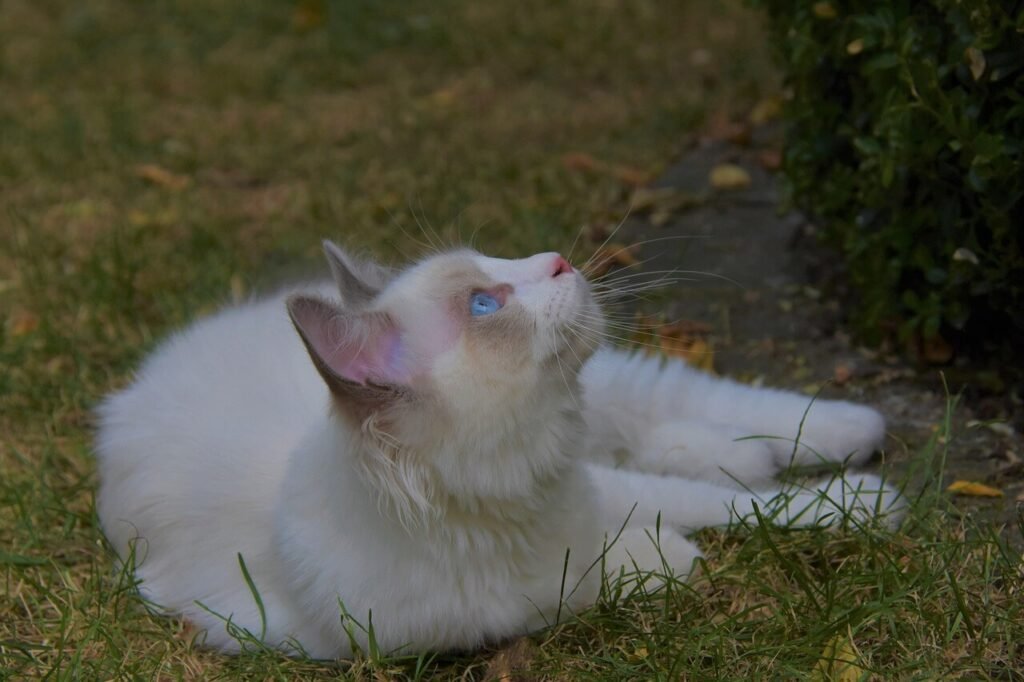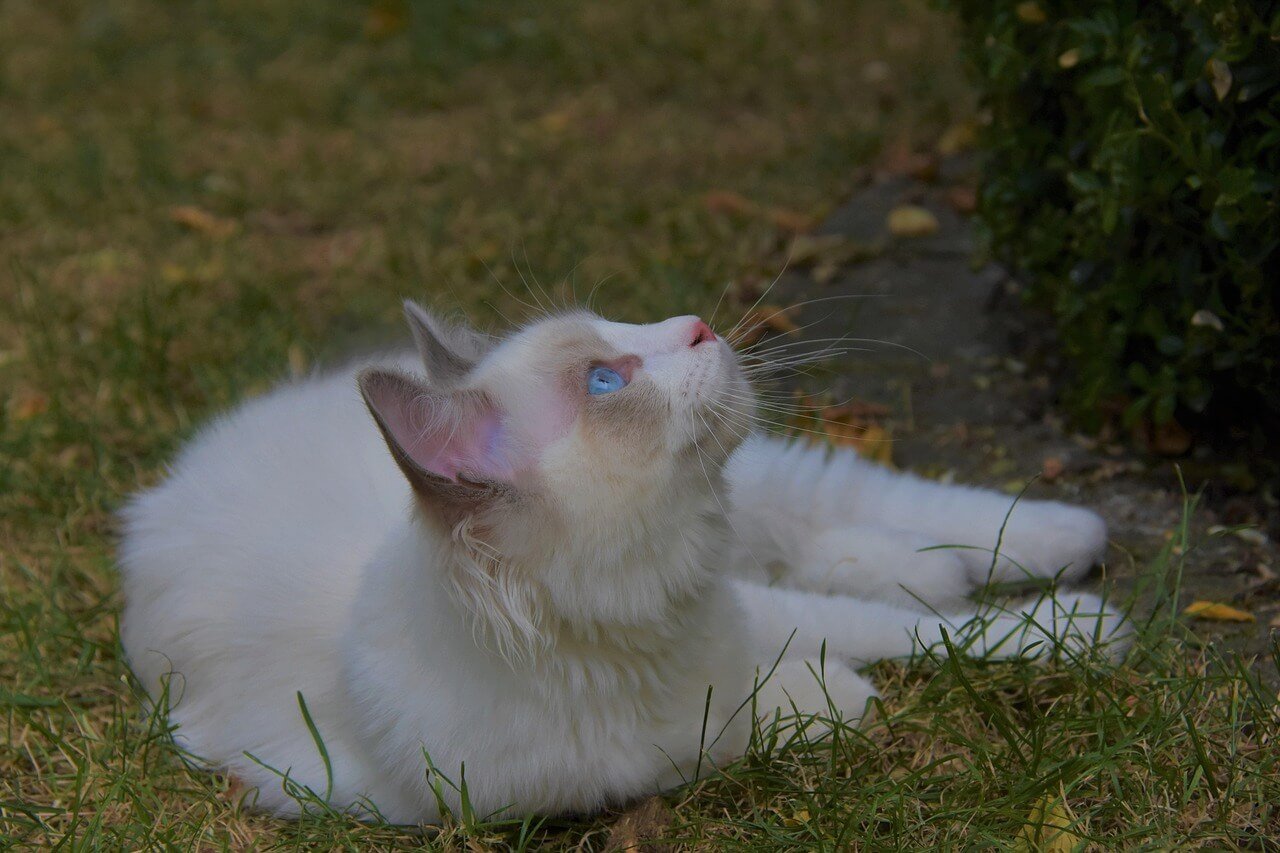Ragdoll Cat Lifespan: How Long Do These Gentle Giants Live?
Ragdoll cats are beloved for their striking blue eyes, silky coats, and affectionate personalities. Known as one of the most docile and loving cat breeds, Ragdolls make wonderful companions for families, singles, and seniors alike. But how long can you expect your Ragdoll to live? Understanding the factors that influence a Ragdoll cat’s lifespan is essential for ensuring they lead a long, healthy, and happy life. In this guide, we’ll explore everything you need to know about the Ragdoll cat lifespan, including tips for maximizing their years by your side and addressing potential health concerns.
Average Lifespan of a Ragdoll Cat
The Ragdoll cat lifespan typically ranges from 12 to 17 years, though some well-cared-for Ragdolls can live into their late teens or early twenties. Several factors contribute to their longevity, including genetics, diet, and overall care. Here are some key points about their lifespan:
Genetic Factors : Ragdolls are generally healthy, but like all purebred cats, they may be prone to certain hereditary conditions that can impact their lifespan.
Indoor vs. Outdoor Lifestyle : Indoor Ragdolls tend to live longer due to reduced exposure to dangers like traffic, predators, and diseases.
Veterinary Care : Regular check-ups and preventive healthcare play a significant role in extending a Ragdoll’s life.
Diet and Nutrition : A balanced, high-quality diet supports their immune system and overall health, contributing to a longer lifespan.
Exercise and Mental Stimulation : Keeping your Ragdoll active and engaged helps prevent obesity and boredom-related issues.
By understanding these factors, you can take proactive steps to ensure your Ragdoll enjoys a long and fulfilling life.
Health Issues That May Affect a Ragdoll Cat’s Lifespan
While Ragdolls are generally robust and healthy, they are predisposed to certain health conditions that could impact their lifespan. Being aware of these issues allows you to monitor your cat’s health and seek timely veterinary care.
Hypertrophic Cardiomyopathy (HCM) : This heart condition is common in Ragdolls and can lead to heart failure if not managed properly.
Bladder Stones : Ragdolls may be prone to urinary tract issues, including bladder stones, which require dietary management.
Obesity : Their laid-back nature makes Ragdolls susceptible to weight gain, which can shorten their lifespan.
Dental Disease : Poor dental hygiene can lead to infections and other health problems that affect longevity.
Kidney Disease : As with many cats, chronic kidney disease is a concern, especially in older Ragdolls.
Early detection and proper management of these conditions can help your Ragdoll live a longer, healthier life.
Check this guide 👉Minuet Cat Lifespan: Best 7 Expert Tips!
Check this guide 👉How to Identify a Ragdoll Cat: Best 7 Expert Tips!
Check this guide 👉The Enchanting World of Tuxedo Ragdoll Cats: Best 7 Tips!

Factors That Increase Lifespan | Factors That Decrease Lifespan |
|---|---|
Regular veterinary check-ups | Neglecting routine healthcare |
High-quality, balanced diet | Feeding low-quality or inappropriate food |
Indoor lifestyle | Allowing outdoor roaming |
Mental and physical stimulation | Lack of exercise or enrichment |
Early detection of health issues | Ignoring symptoms or delaying treatment |
Tips for Maximizing Your Ragdoll Cat’s Lifespan
With proper care and attention, you can help your Ragdoll live a long and healthy life. Here are some practical tips to maximize their lifespan:
Schedule Regular Vet Visits : Annual or biannual check-ups allow your vet to catch potential issues early.
Provide a Balanced Diet : Feed your Ragdoll high-quality cat food tailored to their age, weight, and activity level.
Encourage Exercise : Use interactive toys or climbing structures to keep your Ragdoll physically active.
Maintain Dental Health : Brush your cat’s teeth regularly and provide dental treats or toys to reduce plaque buildup.
Monitor Weight : Keep an eye on your Ragdoll’s weight and adjust their diet or activity level to prevent obesity.
By implementing these practices, you can significantly improve your Ragdoll’s chances of living a longer, healthier life.
How to Enhance Your Ragdoll’s Quality of Life
A long lifespan isn’t just about quantity—it’s also about quality. Ensuring your Ragdoll is happy and comfortable is just as important as extending their years. Here are some ways to enhance their quality of life:
Provide Comfortable Spaces : Ragdolls love lounging, so offer cozy beds, blankets, and perches near windows.
Spend Quality Time Together : Ragdolls thrive on human interaction, so dedicate time to cuddling, playing, or grooming them.
Create a Safe Environment : Remove hazards like toxic plants, small objects, or open windows to keep your Ragdoll safe indoors.
Offer Mental Stimulation : Puzzle feeders, treat-dispensing toys, and new activities can keep your Ragdoll mentally sharp.
Minimize Stress : Maintain a calm household and avoid sudden changes to their routine to reduce anxiety.
A happy Ragdoll is more likely to stay healthy and enjoy their time with you to the fullest.
Clarifying Myths to Better Understand Your Ragdoll’s Needs
There are several misconceptions about Ragdoll cats that can impact how owners care for them. By addressing these myths, you can provide better support for your cat’s longevity. Here are some common misunderstandings:
Myth: Ragdolls Don’t Need Exercise : While they are laid-back, Ragdolls still require physical activity to stay healthy and avoid obesity.
Myth: Indoor Cats Can’t Get Sick : Even indoor Ragdolls can develop health issues like dental disease or heart conditions without proper care.
Myth: Ragdolls Are Hypoallergenic : Though they produce fewer allergens than some breeds, no cat is truly hypoallergenic.
Myth: They’re Low-Maintenance Cats : Their long coats require regular grooming to prevent matting and skin issues.
Myth: Ragdolls Live Longer Than Other Cats : While they have a decent lifespan, it’s not guaranteed unless their health is prioritized.
By dispelling these myths, you can focus on evidence-based practices to ensure your Ragdoll thrives.
Recognizing the Hallmarks of a Healthy Senior Ragdoll
As your Ragdoll ages, certain signs indicate they are aging well and maintaining good health. Monitoring these aspects can help you detect potential issues early. Here are some positive indicators:
Stable Weight : Maintaining a healthy weight without significant fluctuations is a sign of good overall health.
Active Behavior : A senior Ragdoll who remains playful and engaged is likely in good physical condition.
Shiny Coat : A soft, glossy coat reflects proper nutrition and grooming habits.
Good Appetite : Consistent eating habits suggest their digestive system is functioning well.
Clear Eyes and Ears : Bright, clear eyes and clean ears indicate they are free from infections or chronic conditions.
If your Ragdoll shows these signs, they’re likely aging gracefully—but always consult your vet if you notice any concerning changes.
Supporting Your Aging Ragdoll with Specialized Care
As your Ragdoll enters their senior years, their needs will change, and providing tailored care is essential for their comfort and health. Here are some ways to prepare for this stage of life:
Adjust Their Diet : Senior Ragdolls may benefit from food formulated for older cats, focusing on joint health and reduced calories.
Increase Vet Visits : Older cats should see the vet more frequently to monitor for age-related conditions like arthritis or kidney disease.
Provide Comfortable Resting Areas : Soft bedding and easy-to-access perches help aging Ragdolls rest comfortably.
Simplify Their Environment : Reduce obstacles and create a calm, predictable space to accommodate decreased mobility or vision.
Monitor Behavioral Changes : Subtle shifts in behavior, appetite, or activity levels can signal underlying health concerns.
By preparing for your Ragdoll’s senior years, you can ensure they remain comfortable, happy, and loved throughout their golden years.
Frequently Asked Questions About Ragdoll Cat Lifespan
What is the average lifespan of a Ragdoll cat?
The average lifespan of a Ragdoll cat is 12 to 17 years, though some can live into their late teens or early twenties with proper care.
Are Ragdolls prone to any specific health issues?
Yes, Ragdolls are prone to conditions like hypertrophic cardiomyopathy, bladder stones, and obesity, which can impact their lifespan.
How can I extend my Ragdoll’s lifespan?
Provide regular vet care, a balanced diet, mental and physical stimulation, and a safe indoor environment to maximize their lifespan.
Can Ragdolls live outdoors?
While possible, it’s safer for Ragdolls to live indoors to avoid risks like accidents, predators, and diseases.
How do I know if my Ragdoll is aging well?
Signs include maintaining a healthy weight, staying active, having good dental health, and showing no signs of chronic illness.
Give Your Ragdoll the Gift of a Long, Happy Life
Understanding the Ragdoll cat lifespan and taking steps to support their health can make a world of difference in their quality and length of life. From providing a nutritious diet and regular vet care to creating a loving and stimulating environment, every effort you make contributes to their well-being. With their gentle temperament and affectionate nature, Ragdolls bring immense joy to our lives—and by caring for them properly, we can ensure they stay by our side for many wonderful years. Cherish every moment with your Ragdoll, and give them the love and care they deserve.
Dog Tapeworm Life Cycle: Best 7 Expert Tips! – Learn how tapeworms infect dogs, spot symptoms, and break the cycle with expert prevention strategies.
Anxious Cat Body Language: Best 7 Expert Tips! – Learn to spot signs of stress, understand triggers, and help your cat feel safe and relaxed.
Anxious Dog Body Language: Best 7 Expert Tips! – Learn to spot signs of anxiety, respond effectively, and help your dog feel safe and secure.
Is Breeding Dogs Bad? Best 7 Expert Tips! – Explore the ethics, benefits, and risks of dog breeding to make informed decisions for a better future.





